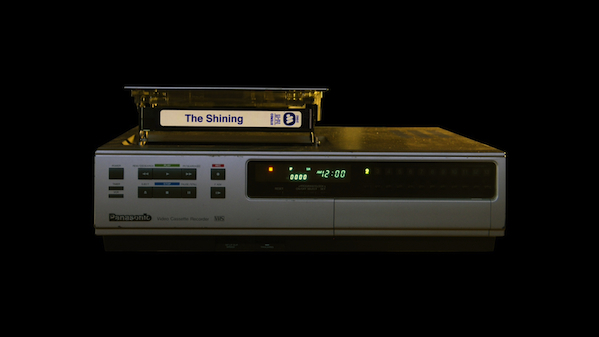A deconstruction of Kubrick's 1980 horror film The Shining, Room 237 makes maps of the mysterious maze of messages found within the walls of the iconic Overlook Hotel. While the documentary seems too complicated to casually describe, it is really quite simple. Director Rodney Ascher playfully yet prudently described his film through a reclaimed criticism, "There was somebody who actually had something negative to say about it, but I took it as a compliment, comparing it to a late-night dorm conversation." Ascher then expressed a great affection for those late night discussions that attempt to draw meaning from stupid pop songs or Saturday morning cartoons or cult midnight movies. The conversation that unfolds his film is simultaneously compelling and whimsical. By intellectualizing pop culture, Room 237 forces us to consider how we view all media. And when you obsessively mine for meaning, everything seems infinite.
The theories surrounding The Shining's subliminal personality are revealed by intriguingly faceless film aficionados. The mysterious voices approach themes of historical tragedy, government conspiracy, sexual repression and the dynamic processing and gluttonous consumption of modern media. The common thread amongst the highly intelligent narrators is that they see Stanley Kubrick as an absolute master, painting a world that we might not immediately understand, but it is understood that there is reason and substance inherent in it. To use religion as a metaphor, Kubrick is God, and we must have faith that everything happens for a reason, according to his plan. The same argument could be made against religion that there is only coincidence, and meaning is being made up by those who so badly want to believe that God exists (or in this case, Kubrick infallibility). Though there is no way to define (without doubt) the implications of events of the world, there is no denying that there is a system at work, even it is nothing more than random chaos creating patterns.

Photo by Rodney Ascher. Courtesy IFC Midnight.
Something that is consistently touched on throughout the strands of rhetoric is continuity error. It can be argued that the continuity errors are simply mistakes. However, Kubrick is known as a consummate perfectionist and masterpiece filmmaker. All the evidence points to Kubrick purposefully placing these directorial indiscretions throughout his film to add layers of meaning or to hint at questions (without answers) or to play a joke on the over analytical. Even if all the mistakes were not initially intentionally, it is clear that they have been orchestrated by Kubrick to create a symphony of discontinuity. By embracing the horror genre Kubrick was able to ignite a sort of departure for himself, creating a new, subversive, exciting, experimental form of filmmaking. In this way, the aberrant auteur is punk. The reason early punk music was so refreshing... the reason punk had such an immense impact was because it was not afraid to celebrate its mistakes. This clever documentary explores the process of a genius constructing a densely layered experiment that actually parodies the filmmaking process. Above all, it should be precisely stated; Stanley Kubrick made remarkable films that astonishingly have their own active subconscious.
Psychologically challenging and philosophically stimulating, Room 237 stretches beyond the screen and completely captivates your consciousness. It would be much too easy to dismiss this chatty little flick as a silly study in crackpot speculation. Rather, its well-crafted eloquence succeeds in raising poignant questions that are pertinent to understanding human behavior. The thematic elements run rampant within the 102-minute running time. The symbolism expressed is surprisingly accessible and urgently relevant in our modern, multi-media saturated society. Pressures of making deals with the government giving way to evil. Sexual repression turning to murderous horror. Echoes of genocide. Rodney Ascher and Tim Kirk have compiled an innovative, profoundly vital exploration of the horrendous horrors of humanity. This is the kind of movie that needs to be made and deserves to be seen.
Room 237 is now available on iTunes, VOD and has been given limited theatrical release.